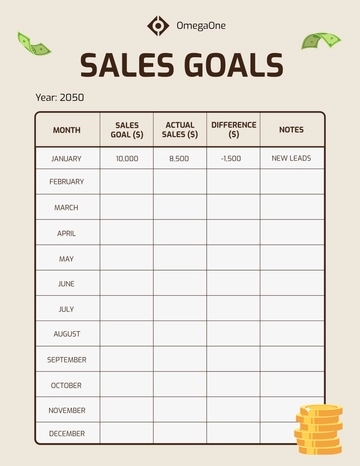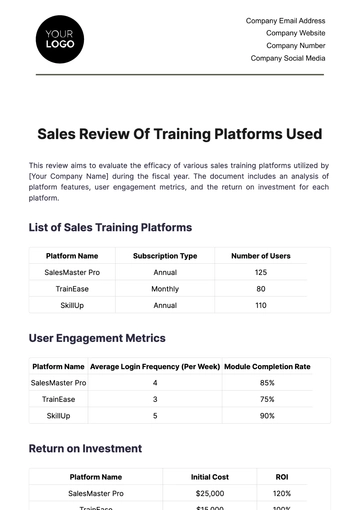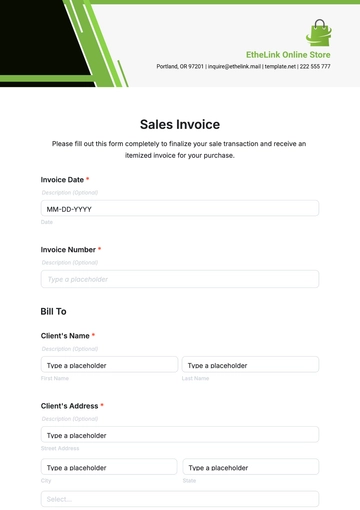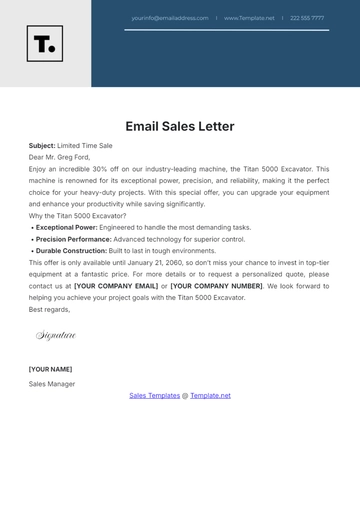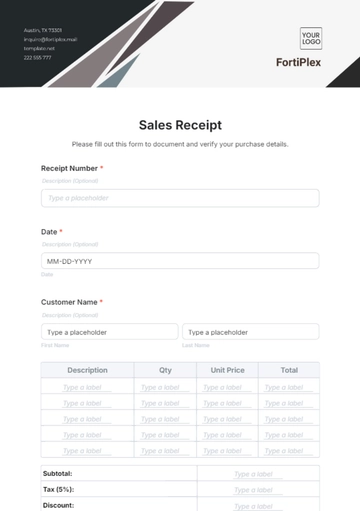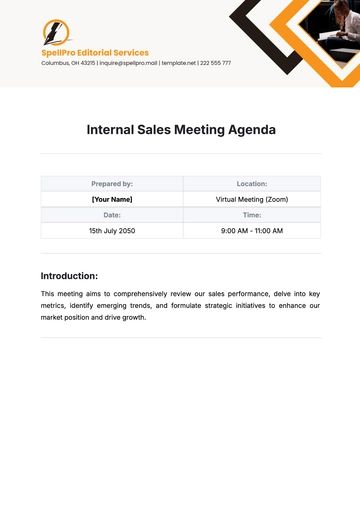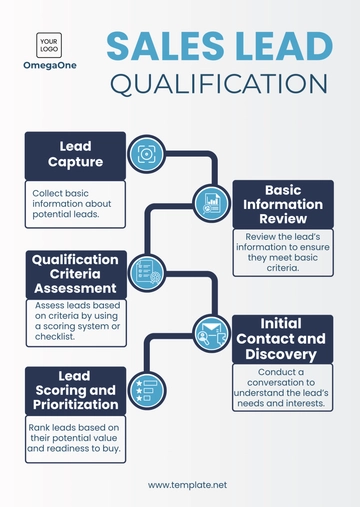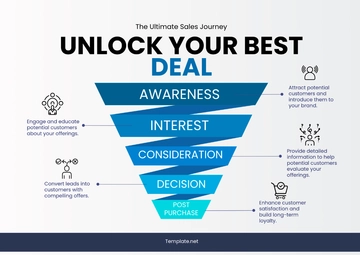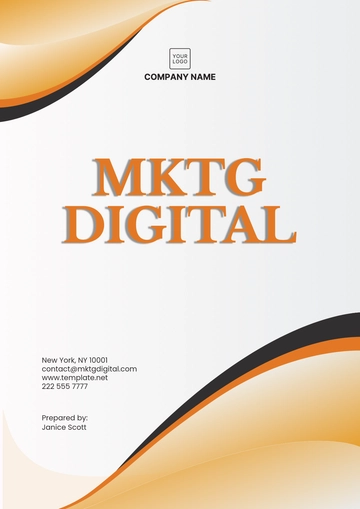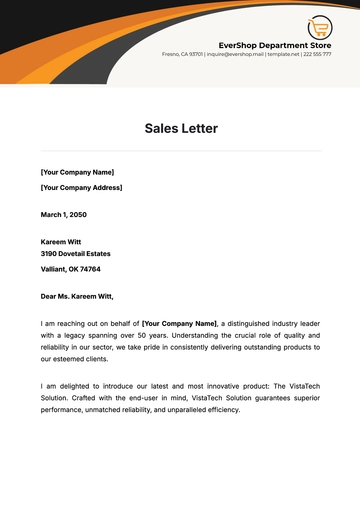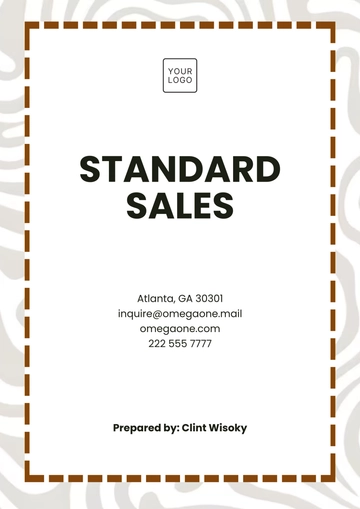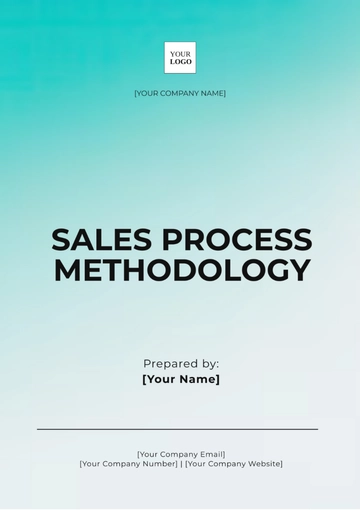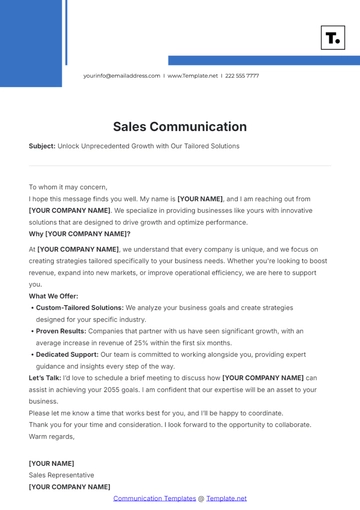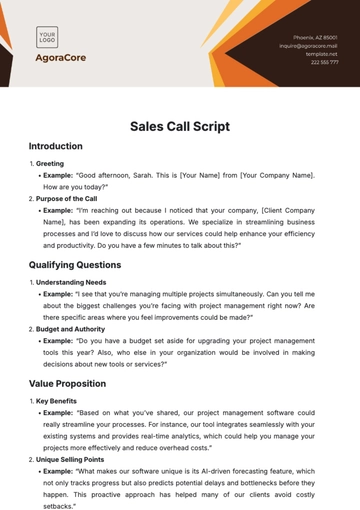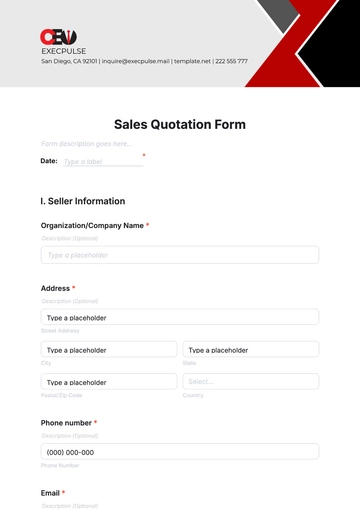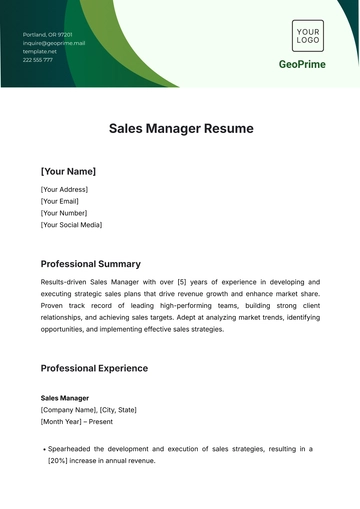Free Sales Protocol for Amending Commission Structures
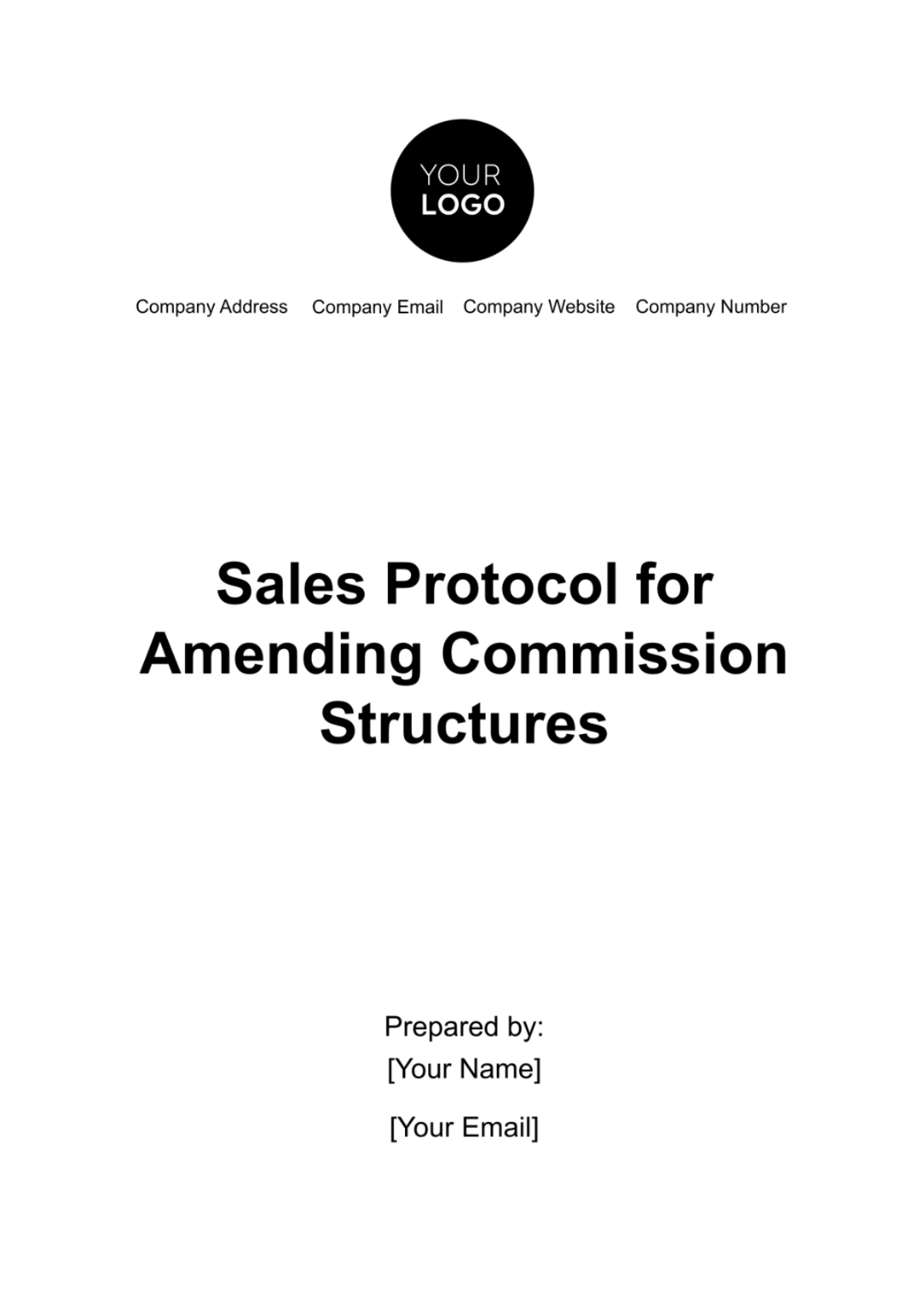
Effective Date: [Date]
INTRODUCTION
At [Your Company Name], we understand that a dynamic and evolving business landscape requires us to adapt swiftly to changing market dynamics and industry standards. To maintain our commitment to fair and motivating commission structures, we have established this protocol for amending commission structures. This protocol serves as a guideline to ensure that our sales agents are adequately incentivized, and our company's growth remains aligned with best practices and competitive trends.
OBJECTIVES
The objectives of our commission structure amendment protocol encompass several key aspects:
Competitiveness and Attractiveness: We aim to maintain and enhance the competitiveness of our commission structures, making them attractive to top-tier sales agents in the market. Our goal is to continue being a sought-after destination for talented professionals in our industry.
Market Dynamics and Industry Standards: As the business landscape shifts and industry benchmarks evolve, we recognize the importance of ensuring our commission structures remain in step with these changes. This includes considering adjustments that reflect market trends and shifts in the competitive environment.
Incentivizing Desired Behaviors: Our commission structures are designed to motivate and reward sales behaviors that drive our business's success. We will assess and amend our structures to ensure they effectively incentivize the behaviors and outcomes aligned with our business objectives.
Supporting Business Growth and Profitability: Commission structures should play a role in supporting our business's growth and profitability. We aim to balance the commissions in a way that motivates our sales agents while contributing to the overall financial health of the company.
In light of these objectives, this protocol outlines the steps and criteria for amending commission structures, maintaining fairness, and ensuring transparency throughout the process.
PROPOSAL SUBMISSION
Sales agents, department heads, or other relevant stakeholders may submit proposals for commission structure amendments to the Commission Amendment Committee via an established Submission Process, ensuring a systematic and comprehensive review of all proposals. Proposals should include the following components:
Rationale
The proposal should provide a clear rationale for the suggested amendment. Sales agents and stakeholders should articulate the specific reasons for the proposed changes, such as shifts in market conditions, emerging industry trends, or feedback received from the sales team.
Expected Outcomes
Each proposal must outline the anticipated outcomes of the proposed commission structure amendment. This should include expected improvements in agent motivation, sales performance, and the impact on business profitability.
Supporting Data
To strengthen the proposal's case, relevant data and evidence should be provided. This may include sales performance metrics, market research findings, or industry benchmark comparisons that substantiate the need for the suggested changes.
Implementation Plan
In addition to the rationale and expected outcomes, a clear plan for implementing the proposed changes is essential. Proposals should detail the steps, timelines, and resources required for a successful transition to the new commission structure.
Stakeholder Impact
Consideration of how the proposed amendments will impact various stakeholders, including sales agents, the business, and clients, is crucial. A comprehensive assessment of the effects on all parties involved should be included in the proposal.
Alternative Solutions
Proposals may also present alternative solutions or compare multiple options for commission structure amendments. This enables the Commission Amendment Committee to make well-informed decisions by considering various possibilities.
Deadline for Proposal Submission
A deadline for proposal submission will be established, typically on a quarterly or semi-annual basis, ensuring that all relevant suggestions and insights are captured and reviewed. Proposals submitted after the deadline will be considered in the subsequent evaluation cycle.
REVIEW COMMITTEE
The Commission Amendment Committee plays a pivotal role in the transparent and fair assessment of commission structure proposals. The committee consists of dedicated members who bring diverse expertise and perspectives to the decision-making process. Committee members include:
COMMITTEE MEMBER | ROLE/DESCRIPTION |
Sales Leadership | Senior sales executives, who can assess the proposals from a strategic sales perspective and ensure alignment with the overall sales goals and objectives of the company. |
Finance and Accounting | Professionals with in-depth financial knowledge, responsible for evaluating the cost implications and financial feasibility of proposed changes. |
Legal Advisors | Legal experts to ensure that any amendments comply with relevant laws and regulations, as well as safeguarding the company's interests. |
Human Resources | HR representatives who can assess the impact of commission changes on workforce motivation and engagement, ensuring that these changes are aligned with talent management strategies. |
Market Research Analysts | Experts in market trends and industry benchmarks, who provide insights on how the proposed changes compare with competitors and market standards. |
The committee meets regularly, as needed, to review incoming proposals. They assess each proposal's potential impact on sales agent motivation and performance, the alignment with industry benchmarks and standards, the contribution to business profitability and growth, and the fairness and transparency in commission calculations. These multi-faceted evaluations ensure that any commission structure amendments are well-informed, balanced, and in the best interest of all stakeholders involved.
The committee's commitment to comprehensive evaluation and its diverse composition guarantee a well-rounded decision-making process, enhancing the quality and relevance of commission structure amendments. This approach underscores [Your Company Name]'s dedication to nurturing a motivated, high-performing sales team while ensuring the company's continued success.
EVALUATION CRITERIA
Proposals for commission structure amendments will undergo rigorous evaluation to ensure that any changes are aligned with our core objectives and industry best practices. The following comprehensive criteria will guide the assessment:
Impact on Sales Agent Motivation and Performance
Proposals will be scrutinized to determine how they might affect the motivation and performance of our sales agents. We will assess whether the amendments encourage agents to strive for higher targets and deliver better results.
Key questions include:
Will the proposed changes provide clear incentives for outstanding performance?
Are the changes designed to boost agent morale and commitment?
How do the amendments align with our goal of attracting and retaining top talent in our sales force?
Alignment with Industry Benchmarks and Standards
To maintain our competitive edge, any amendments must align with industry benchmarks and standards. We will examine whether the proposed changes are in line with prevailing practices in the industry, ensuring that our commission structures remain attractive.
Key considerations include:
Are the proposed amendments competitive in comparison to industry standards?
How do the changes compare to those of key competitors in our market?
Do the proposed changes reflect the current trends and practices in the industry?
Contribution to Business Profitability and Growth
Amendments should contribute to the overall profitability and growth of our company. We will assess whether the changes are economically viable and sustainable.
Key factors to be examined include:
Will the proposed amendments drive increased sales and revenue for the company?
Are the changes designed to optimize cost-efficiency and resource allocation?
How do the amendments align with our overarching business growth strategy?
Fairness and Transparency in Commission Calculations
Fairness and transparency in commission calculations are of paramount importance. We will evaluate whether the amendments promote equitable treatment of all sales agents and ensure that commission calculations are clear and easily understandable.
Key points to consider include:
Do the proposed amendments eliminate potential bias or favoritism?
Are the changes transparent and straightforward in their application?
How do the amendments enhance trust and satisfaction among our sales agents?
This comprehensive evaluation process will help us make informed decisions that strike a balance between motivating our sales agents, ensuring competitiveness, and supporting our business growth objectives while maintaining fairness and transparency.
DECISION-MAKING PROCESS
The decision-making process for amending commission structures involves a thorough assessment by the Commission Amendment Committee. The committee's objective is to ensure that proposed changes are well-considered, in alignment with the company's strategic goals, and in the best interest of sales agents and the business as a whole.
Proposal Review
Upon receiving a proposal, the committee initiates a comprehensive review process. This entails a detailed examination of the proposal's content, including the rationale behind the suggested amendments and the expected benefits. The proposal is cross-referenced with industry benchmarks and market conditions to gauge its feasibility and appropriateness.
Stakeholder Input
The committee may seek input from relevant stakeholders, including sales agents, department heads, and financial experts, to gain a holistic perspective. This input ensures that the proposed changes consider the implications on individual sales agents and the various business units.
Evaluation Criteria
The committee assesses each proposal based on the predetermined evaluation criteria, as outlined in the previous section. These criteria serve as a benchmark to measure the impact of the proposed amendments in terms of motivation, competitiveness, profitability, and fairness.
Deliberation and Decision
Committee members engage in thorough deliberation and discussion regarding the proposed amendments. Each member brings their expertise and perspective to the table. The committee reaches a decision based on the consensus of its members or a majority vote, ensuring that a well-informed and balanced judgment is made.
Communication of Decision
Upon reaching a decision, the committee promptly communicates the outcome to all relevant stakeholders. This includes providing a summary of the proposed changes, the rationale behind the decision, and the expected implementation timeline. Transparency in communication is key to ensuring clarity and alignment throughout the organization.
Appeals Process
In cases where stakeholders may disagree with the committee's decision, a well-defined appeals process is in place. This process allows for additional discussion and evaluation to address concerns and ensure that the final decision is equitable and in line with the company's best interests.
Documentation
The committee maintains detailed records of the decision-making process, including meeting minutes, feedback received, and any supporting data. These records serve as a valuable resource for future reference and evaluation.
COMMUNICATION
Upon reaching a decision regarding commission structure amendments, effective and clear communication is crucial to ensure all relevant stakeholders are informed and aligned with the changes. The following steps will be taken:
Internal Announcement
An internal announcement will be made to all sales agents, department heads, and relevant employees affected by the commission structure amendments. This announcement will provide a concise overview of the changes, emphasizing their benefits and the reasons for the adjustments.
Training Sessions
To facilitate a smooth transition, we will schedule comprehensive training sessions for all sales agents to ensure they understand the new commission structures, calculations, and how these changes impact their earning potential. The training sessions will be conducted by our dedicated sales training team and will be both in-person and accessible online for remote teams.
Detailed Documentation
A comprehensive document outlining the revised commission structures, including detailed calculations and examples, will be made available to all sales agents. This document will serve as a reference guide to help agents navigate the changes effectively and answer any questions they may have.
Q&A Sessions
To address any queries, concerns, or clarifications that sales agents may have, we will conduct regular Q&A sessions, either in person or via video conference, to provide a platform for open communication. These sessions will be led by members of the Commission Amendment Committee and senior management, allowing agents to voice their thoughts and receive immediate responses.
Feedback Channels
We encourage our sales agents to provide feedback on the amended commission structures. A dedicated feedback channel will be established, enabling agents to share their thoughts, concerns, and suggestions. We value their input and are committed to addressing their needs.
Follow-Up Communications
To maintain transparency and keep everyone informed, we will send regular follow-up communications to remind sales agents of the changes, track their progress in adapting to the new structures, and gather further feedback. These follow-up communications will be sent at regular intervals following the implementation date.
IMPLEMENTATION TIMELINE
Upon the approval of commission structure amendments, [Your Company Name] will diligently adhere to the following implementation timeline:
Initial Communication (0-7 Days)
Within the first week of the decision, an initial communication will be sent to all sales agents, department heads, and relevant stakeholders. This communication will outline the forthcoming changes and emphasize our commitment to their success.
Training and Workshops (7-30 Days)
Over the subsequent weeks, a comprehensive training program will be rolled out, including workshops, webinars, and one-on-one sessions, to ensure that sales agents fully understand the revised commission structures. This educational phase will empower agents to optimize their earning potential under the new system.
Transition Period (30-60 Days)
A transition period of up to 60 days will follow, during which both the existing and new commission structures will coexist. This phase allows agents to adapt, offering them a buffer as they switch to the updated model.
Full Implementation (60 Days Onward)
Following the transition period, the new commission structure will be fully implemented. At this point, the amended commission calculations will take effect, and the legacy structure will be phased out.
MONITORING AND FEEDBACK
The implementation of the amended commission structures is a dynamic process. We will continuously monitor and gather feedback to ensure they achieve their intended goals and make adjustments as necessary:
Performance Metrics
We will monitor key performance metrics closely, such as sales volume, agent motivation, and overall profitability. These metrics will serve as a barometer for the effectiveness of the new structures.
Agent Feedback
We value the opinions and experiences of our sales agents. Periodic feedback sessions and surveys will be conducted to gather insights, address concerns, and make refinements based on their feedback.
Regular Reviews
Scheduled reviews by the Commission Amendment Committee will occur at the end of every month. During these reviews, the committee will assess the performance and impact of the amended commission structures and make informed decisions on further adjustments, if necessary.
Agile Adaptation
Flexibility is paramount. If market dynamics or other external factors necessitate adjustments, [Your Company Name] is committed to swift adaptation to ensure that our commission structures remain aligned with our business goals.
CONCLUSION
Amending commission structures is a proactive step to ensure the competitiveness and relevance of our compensation strategy. [Your Company Name] remains committed to nurturing motivated and successful sales agents while driving our business forward.
- 100% Customizable, free editor
- Access 1 Million+ Templates, photo’s & graphics
- Download or share as a template
- Click and replace photos, graphics, text, backgrounds
- Resize, crop, AI write & more
- Access advanced editor
Elevate sales strategy with Template.net's Sales Protocol for Amending Commission Structures Template. Easily customize and edit in our AI Editor Tool to tailor commission structures for optimal performance. Empower your team with editable, customizable protocols, ensuring flexibility and alignment with evolving business needs. Streamline sales management effortlessly.





